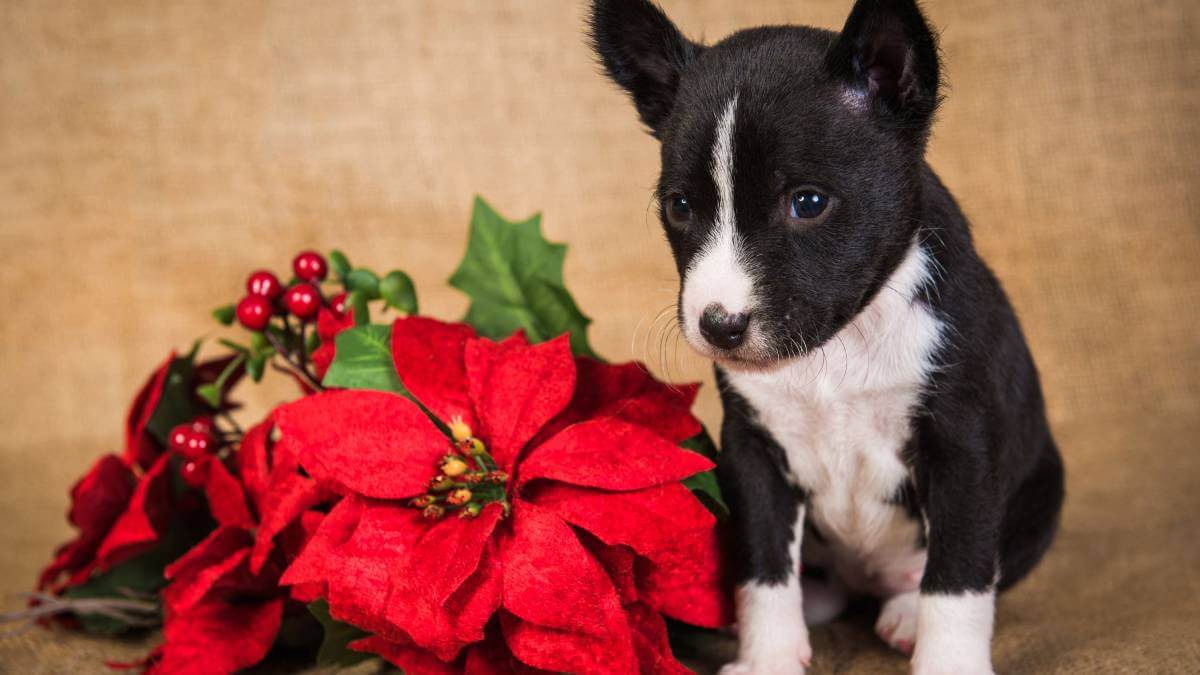If you splashed out on a glorious festive houseplant for Christmas and are hoping it lasts well into the New Year, spare a thought for your pets, because some houseplants can be toxic to cats and dogs.
View this post on Instagram
Poinsettia, mistletoe and holly, for instance, can be harmful to pets, along with other popular houseplants.
Dave Leicester, of Vets Now (vets-now.com), looks at the popular festive plants that will last beyond Christmas and could be hazardous for pets.
Poinsettia
View this post on Instagram
“Poinsettias are originally from Mexico and are a famous festive houseplant. Their iconic red petals are actually leaves and they’re mildly toxic to dogs and cats. Eating poinsettia can cause drooling, oral pain, and vomiting — but only if your pet is interested in large enough quantities.
“On the plus side, the plant contains an irritant sap and it’s unlikely your dog would eat enough to cause serious harm because of the taste and irritation it causes.
“As with almost all poisons, the size of your dog and the amount they ingest will determine how sick they become. The bigger the dog the less likely it is to suffer after eating a small amount. Our advice is simply to keep poinsettias out of reach,” says Mr Leicester.
Holly
View this post on Instagram
“You may have put sprigs of holly in table decorations and around candles, which are accessible to pets, but beware the berries are toxic to dogs, cats and humans. Several varieties include saponins, which can cause severe vomiting and diarrhoea if eaten. Other symptoms can include drooling, lip smacking and head shaking.”
Amaryllis
View this post on Instagram
“Often given as a Christmas gift, these huge-flowered favourites can bloom for up to two months if kept warm and dry. However, they are poisonous. The stalks, flowers and bulbs contain phenanthridine alkaloids which are toxic to both dogs and cats. The highest proportions are in the bulbs. Eating amaryllis can cause vomiting, changes in blood pressure, tremors and seizures.”
Read: Seven foods you should never feed your dog
Christmas rose
Good morning Mr. Jacob Gold Collection #hellebore #christmas #rose #poisonous #fragrant #winter #spring #flowers pic.twitter.com/VcLvdgMiIe
— This And That (@AThisThat2) March 1, 2016
“Originally known as the black hellebore, these hardy plants have been renamed Christmas roses even though they aren’t related to the rose and rarely flower in December. They contain poisonous cardiotoxins and, if eaten, can cause diarrhoea, colic, lethargy, drooling and abdominal pain. It’s worth bearing in mind the entire plant is poisonous, including the roots, stem and flowers.”
Ivy
View this post on Instagram
“If your dog eats ivy, also known by its Latin name Hedera helix, it’s likely it will develop vomiting, diarrhoea and drooling. In more severe cases you may also see blood in the vomit or faeces. Skin contact with ivy is also dangerous and can cause conjunctivitis, itchiness, and rashes.”
Plus
View this post on Instagram
Popular plants such as the Swiss cheese plant (Monstera deliciosa), Christmas kalanchoe (Kalanchoe blossfeldiana), weeping fig (Ficus benjamina) and croton (Codiaeum variegatum) are also toxic to pets in varying degrees.
How to keep your pets safe
Dr Richard Hull, of Patch Plants (patchplants.com), adds: “Animals and plants are two things that make a house a home. When combining the two, there are easy ways to make sure pet and plant can live in perfect harmony.”
Here are his tips for keeping pets safe from harm.
Choose pet-safe plants
Some houseplants can be mildly toxic if eaten, but many are safe if your pet takes a sneaky nibble. Your furry friends will probably have no interest in them anyway. Have you ever seen a dog eat a salad? The kentia palm is a pet-friendly choice.
Hang them high
View this post on Instagram
Hanging pots are a great way to keep plants out of reach of your pets, even cats. If you have your heart set on a plant that isn’t 100 per cent pet-friendly, put it somewhere high up.
Use plant stands
If you have a cat or a small dog, a plant stand will usually be enough to lift a large plant out of reach. As a bonus, they make your plant look extra stylish.
Were you aware that these festive houseplants could harm your pets? How do you keep your furry friends safe from toxic houseplants? Let us know in the comments section below.
Also read: Eight weird and wonderful houseplants
– With PA

